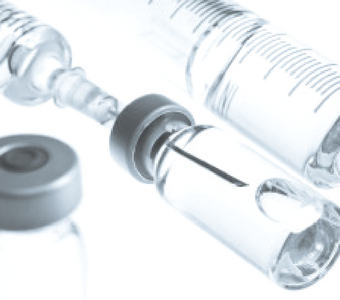Shares of Spectrum Pharmaceuticals (NASDAQ:SPPI) have been under pressure as investors await the supply of generic leucovorin to increase and compete with SPPI’s branded cancer treatment, Fusilev. Because manufacturers of generic leucovorin have been unable to reliably supply the product since mid-2010 (the second shortage), Fusilev sales have benefitted with a current annual sales run-rate of more than $200 million. Fusilev is a purer form of leucovorin (called levo-leucovorin), and while the two drugs can be substituted for each other, Fusilev has other attributes that could protect against a major loss of market share to cheaper leucovorin generics.
Sagent Pharmaceuticals (NASDAQ:SGNT) received FDA approval for its generic leucovorin product in early September, and Monday morning announced that the product had officially launched. Limited supply of generic leucovorin exists in the market; according to data from IMS Health, leucovorin sales were just $14 million for the 12 months ending June 30, 2012. Despite the new market entrant, SGNT has noted in the past that it can only supply ~20% of the market. In addition, many analysts and investors already expect Fusilev sales to be lower next year relative to 2012, hence shares of SPPI falling from a high this year of $17.48 to the current level of ~$11.00 in advance of the generic launch.
Barriers to generic competition for Fusilev include the drug’s exclusive indication for colorectal cancer and a Medicare J-code, which means doctors get reimbursed for Fusilev at a much higher price than the generic and therefore, can make more money dispensing it. Hospital use, which represents only ~20% of the leucovorin market, is the biggest threat to Fusilev, given that hospitals are incentivized to seek the lowest price possible. As a result, the hospital market is where SGNT’s generic is expected to gain the most traction, however, nervousness over the reliability of generic leucovorin is likely to enable Fusilev to retain some share in this segment.
SPPI has executed exceptionally well with Fusilev; sales of the drug have risen for each of the last eight quarters, and notably, the drug beat Wall St. sales estimates in 2Q 2012. Average Selling Price (or ASP), which is a U.S. government-calculated actual selling price of the drug, has also increased throughout the year, and higher pricing supports Fusilev’s future sales potential. SPPI’s acquisition of Allos Therapeutics (NASDAQ:ALTH) also gives the company flexibility, as it expects to significantly cut costs of the combined company and boost revenue from the contribution of ALTH’s lead commercial drug Folotyn. The financial flexibility of the acquisition should enable SPPI to offset financial pressure on Fusilev, a smart move indeed. Importantly, analysts estimate SPPI to earn $1.39 this year on an EPS basis, falling to $1.03 next year, evidencing that any weakness related to Fusilev is priced into the stock. Expect SPPI to trade better as generic leucovorin enters the market and, most-likely, has limited impact on Fusilev’s sales base. If Fusilev can continue to grow through the entry of generic leucovorin, this would be an unexpected positive, and SPPI could head back to its highs for the year.



